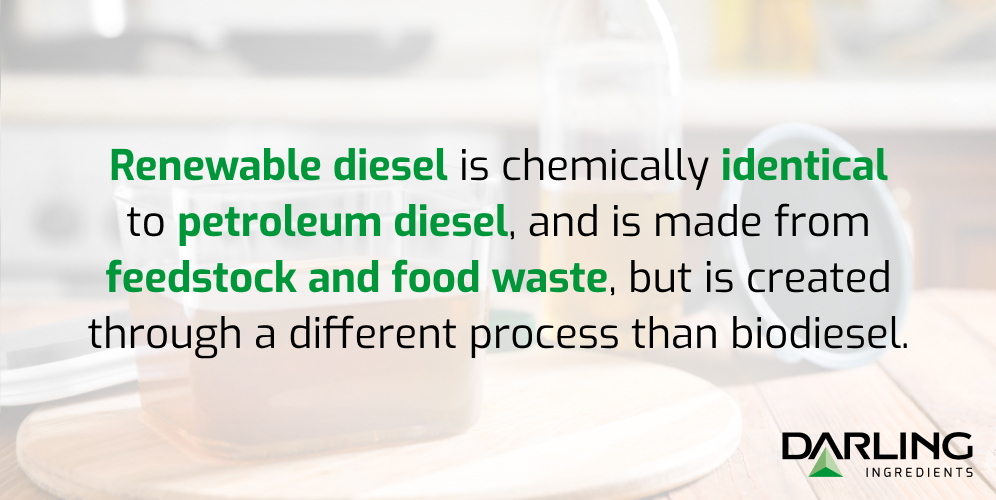What are Biofuels?
Biofuels are fuels made from organic sources rather than petroleum. The term does cover mixtures of organic compounds and petroleum fuels. These mixtures still have similar benefits of completely organic biofuels.
The term biofuels doesn’t just refer to what we put in our cars. Wood and coal are considered biofuels. However, most people think of powering their vehicles when they hear “biofuels,” and that’s how we’ll talk about them in this article.
The reason biofuels are getting so much buzz and research behind them is because they burn cleaner and sometimes more efficiently than petroleum fuel. And even better, they’re made from renewable resources.
Different Types of Biofuels
Biofuels are categorized into four “generations” based on what they are composed of.
First generation—made from food crops.
Second generation—made from food waste.
Third generation—made from algae and aquatic plants.
Fourth generation— made using organisms.
Every generation of biofuels produce fewer emissions, making them an environmentally friendly alternative to petroleum fuel. And the more research and development that scientists are able to do means that biofuels are becoming more and more efficient.

Ethanol
Ethanol is the biofuel the average driver sees at the gas pumps. It’s an alcohol made primarily from feedstock sugars like cellulose, which is found in corn and other grasses.
Ethanol is not used on its own, but combined with petroleum products to reduce emissions. This petrol and alcohol mixture increases the octane rating and burns cleaner than petrol alone.
Biodiesel
Biodiesel is a biofuel produced from feedstock and food waste like used cooking oil and animal by-products. It’s created through a transesterification process and then combined with conventional diesel. Biodiesel is considered to be the very first of the biofuels.
However, a big downside to this type of biofuel is that it can have trouble in cold weather, so it’s not a perfect one-for-one switch.
Renewable Diesel
Renewable diesel is chemically identical to petroleum diesel, which means it doesn’t need to be combined with petroleum diesel to fuel trucks and heavy equipment.
It’s also made from feedstock and food waste, but is created through a different process than biodiesel. And because it’s chemically identical to petroleum diesel, it can function in freezing temperatures. Renewable diesel is superior to biodiesel and it burns cleanly and more completely than petroleum diesel does.
So far, renewable diesel is an incredible option for the health of the environment without sacrificing the functionality of petroleum fuel. You play an essential role in helping produce it by recycling your used cooking oil (UCO) and animal fats with Darling Ingredients Canada.
Darling Ingredients Canada is the only used cooking recycler that is a Joint Venture partner with in North America’s largest renewable diesel operation, Diamond Green Diesel. We pick up your used cooking oil and animal by-products and processes them to be used in the production of renewable diesel.
With the help of Darling Ingredients Canada, you can reduce your carbon footprint and be a part of the solution by recycling and repurposing your kitchen waste products.

Honorable Mentions
While ethanol, biodiesel, and renewable diesel are the most popular biofuels, there are a few more that consumers may start to see more of.
Hydrocarbon drop-in gasoline, also called green or renewable gasoline, functions similarly to renewable diesel. It can completely replace conventional petroleum gasoline. It’s made from different organic materials, and researchers are still working to find the most efficient source.
Methanol is another alcohol-based liquid biofuel that is commonly used in race cars.
Biobutanol, another alcohol, is a type of liquid third generation biofuel derived from algae and other microorganisms. It can go directly into the infrastructure and vehicles built for diesel. This type of biofuel has lots of potential as it is chemically similar to petroleum diesel fuel and produces a high amount of energy. However, it is currently challenging to produce.
Partner with Darling Ingredients Canada for a Cleaner Future
Commercial kitchens can help be a part of the solution in creating biofuels. The best part is, they can do it by simply recycling food waste. Darling Ingredients Canada will pick up your UCO and animal fats, and alongside Diamond Green Diesel, transforms them into renewable fuel.
It’s never been easier to take part in sustainability solutions. Reach out today to get started.
Contact Sales
For customer service inquiries call our toll free number (800) 263-0302
By submitting this form I agree to the privacy policy including the usage of contact details to contact me for marketing purposes.
